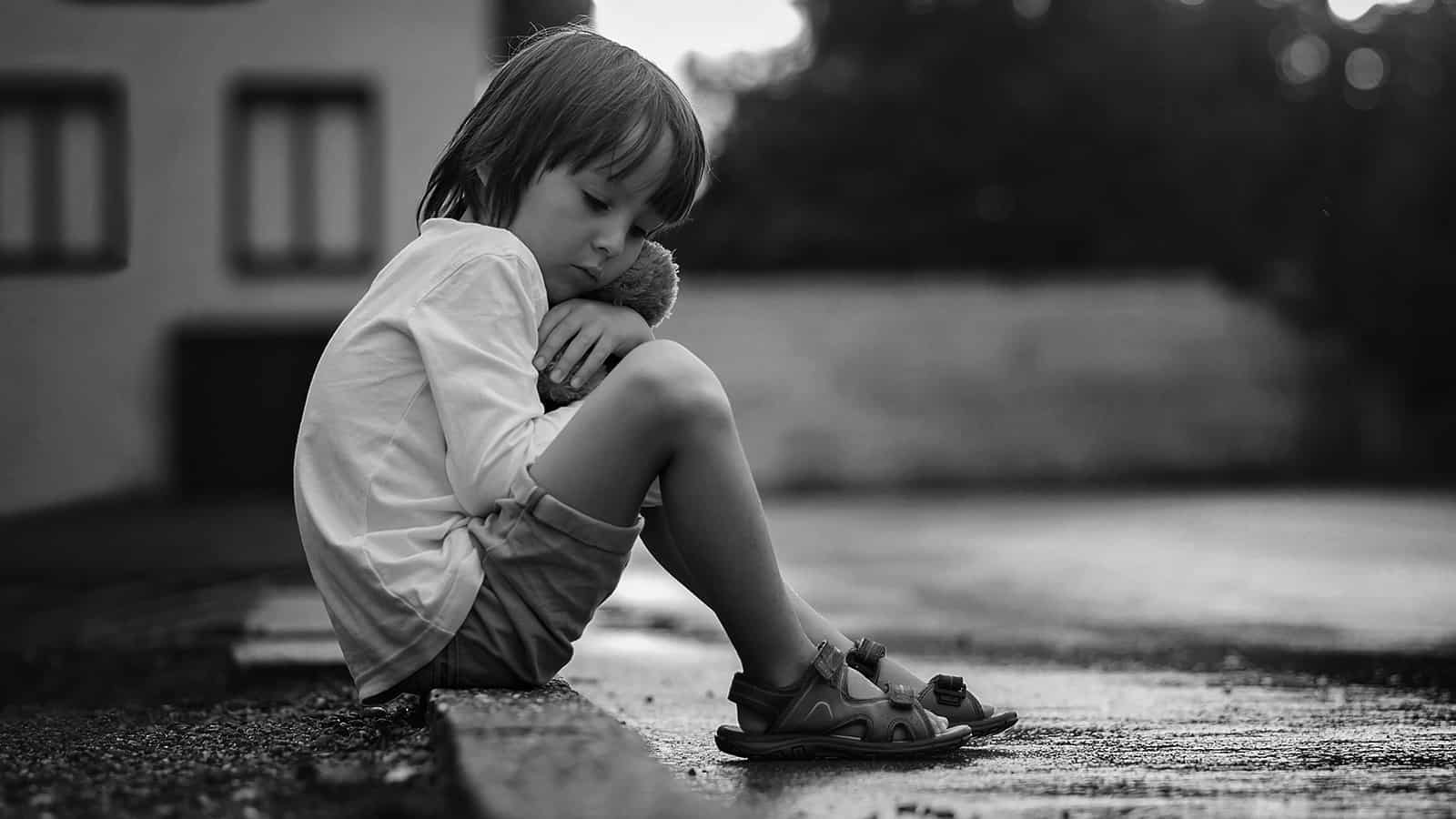Every day you pass children on playgrounds, in your child’s school, or in public places suffering from neglect, but you may not notice the signs. Some kids hide their grief very well, but others show the painful symptoms of a neglected child.
Some of these kids experience trauma and abuse, while others go without food, adequate housing, and their basic needs being met. How do you know that a child is being neglected? Since no definitive test proves neglect or abuse, you must rely on the signs to figure it out.
Ten Signs of a Neglected Child Never to Ignore
A mandated reporter must report issues of abuse or neglect to the authorities. These are folks like a teacher, pastor, social worker, counselor, medical staff, and others that interact with kids daily.
However, just because you’re not a mandated reporter doesn’t release you from the responsibility of being a decent human being and calling attention to an escalating problem. Here are some signs that indicate a child might be in a neglectful situation and needs your help.
1. A Neglected Child Often Wears Ill-Fitting or Dirty Clothes
One of the first signs that a child does not have their needs met is looking at their apparel. Children that are neglected often have clothes that don’t fit, and they will either be too big or too small. Another indication of an issue is soiled garments.
The parents are responsible for ensuring a child has clean clothes to wear. There’s no shame in being poor; you can be poor and still be clean. So, please pay special attention to the clothes as they can tell a lot about child care.
2. Worn Out Shoes
Shoes are another place where you can notice neglect. For instance, children will often have too-small shoes, have holes in them, are missing shoestrings, and are dirty. Remember that children wear out shoes quickly, so don’t mistake poverty or slight wear with lack of care. That indicator becomes true when the shoes no longer protect the feet. The shoes need not be brand names nor do they need to cost a fortune. But they need to protect their feet.
3. Strong Body Odor
It’s standard for teenagers to go through a phase where they smell, especially when their hormones kick into overdrive. If you walk into a high school locker room, you will identify the pungent odor. Kids who are neglected often don’t get baths as they should.
They might also not have access to soap, deodorant, and the things that will help them maintain their hygiene. Most kids won’t brush their teeth or shower unless the parents prod them a bit, which is a sign that the parent isn’t paying proper attention to their child.
4. Anxiety and Depression
According to the CDC, the signs of depression in a child are like an adult, but there are some variations. They state that a child can have phobias, social anxiety, generalized anxiety, and panic disorder. Each of these can lead to depressive states.
According to the site, some signs of anxiety are often displayed as ADHD, and many parents think their child is hyperactive, but it’s not the case. There’s a strong link between anxiety and hyperactivity, so it’s very different in children than in adults. So, a child that acts out and is hyperactive may compensate for their anxiety.
5. A neglected child may display aggression
The class bully almost always has a story behind their behavior. They’re acting out and aggressive, and there’s a reason behind it. When a child shows dominance over another child, these control issues often indicate a significant upheaval, displayed through negative behaviors.
Children and adults alike want control of their life. Sadly, it’s not always easy to control your life when you’re in a situation like being neglected. When a child acts out and shows dominance over another kid, it’s not as it seems. According to Good Therapy, people with control issues often fear losing control of a situation, so they act out in disproportionate and unhealthy ways.

6. Failure to Thrive Might Reveal a Neglected Child
Failure to thrive is a term that’s used to describe a child that’s pediatric-aged. It comes from an inadequate caloric intake and can have neglectful roots or a medical issue behind it. According to the National Library of Medicine, a child is diagnosed with this issue when they don’t meet their age group’s height or weight expectations.
The medical team will evaluate social, psychological, and environmental factors to find the root cause.
7. Developmental Lags
When a child is being neglected or abused, they often don’t meet their milestones. While they may be underweight, food deprivation can cause them to miss milestones. Proper nutrition is imperative for a child to grow and thrive, so missing nutrition might cause a delay in hitting their milestones.
For instance, a mother who leaves a child in the crib all the time to avoid dealing with them can cause their walking to be delayed. A child needs room to test their boundaries and learn balance to walk, and they cannot achieve this in a crib. Other issues for these kids include being non-verbal and those who aren’t potty trained at an older age.
Seeing a 4–5-year-old kid in diapers and with a pacifier is a sign of poor parenting, and it displays a neglectful attitude that’s not helping their child meet milestones.
8. Attention Problems/Hyperactivity
Concentration issues are prevalent these days. Some blame it on the increase in the use of technology, while others say that additives in the food are to blame. Whatever the reasons behind ADHD, it can indicate neglect and abuse.
In the classroom, it’s easier to indicate a child who has an attention problem by their inability to focus. Some may be acting out for attention rather than an actual neurological disorder, so it’s important not to mix the two. A child who craves attention from adults because they’re not getting it at home will take any attention they can get.
This means they prefer to sit in the principal’s office to have that one-on-one rather than go unnoticed. They will take positive or negative attention as long as someone gives them some consideration. It’s sad, but these kids act out, and it’s a cry for help.
9. A Neglected Child Displays Low Self-Esteem
Children who don’t have their emotional needs met can experience an impact on their esteem. They may feel unworthy or unloved and have difficulty fitting in social situations, which is especially true of verbal abuse. To avoid detection, a neglectful parent might blame the child for things far beyond their control, inhibiting good self-worth.
The child can feel some responsibility for the situation, feeling unloved or unwanted, leading to poor esteem that can affect them for life.
10. Emotional Avoidance
Neglected children often cannot display appropriate emotions. Your parents teach you how to act and react to certain situations from the cradle. However, when a child isn’t skilled in such things, they might not know how to respond.
Conversely, a child who gets beat when they cry out may learn to shut down their emotions to avoid getting into trouble. So, any child with emotional issues needs to be investigated. There could be a vast array of problems at the crux, such as mental illness, or it can be neglect.
What to Do When You Suspect a Neglected Child
It’s important to report anything you see out of the ordinary to the proper authorities. Most child protective service divisions have a 24-hour hotline to call and report such things. If you suspect abuse and neglect, you can always call your local police or sheriff’s office.
You can make an anonymous report or give them information for further communication. However, the agency will legally be unable to update you on the specifics of a case. Some folks are scared to make such a call as they fear they may be wrong and bring trouble to these parents. Still, it’s better to make the call and be wrong than to have avoided the issue and been right.
Final Thoughts on Signs of a Neglected Child Never to Ignore
There are more than 656,000 neglected children in this country each year. Additionally, seven percent of those kids are also being abused somehow. Everyone must do their part in making sure children are safe from trauma, abuse, and neglect.
If you see anything out of the ordinary that’s concerning, don’t hesitate to contact someone for help. These kids might be waiting on someone like you to come forward and be their advocate. You may need to be the child’s voice when they cannot speak for themselves.



















